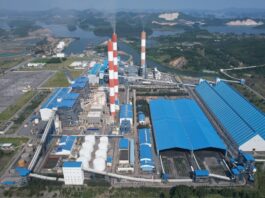Siemens AG and Intel Corporation will work together to promote the digitalisation and sustainability of microelectronics manufacturing. The companies will promote future manufacturing efforts, advancing factory operations and cybersecurity and maintaining a resilient environment for the global industry.
Cedrik Neike, the Chief Executive Officer of Digital Industries and a Managing Board of Siemens AG member, said Siemens would bring its full cutting-edge range of Internet of Things (IoT)-enabled hardware, software, and electrical equipment to this partnership.
As part of the MoU, major collaboration areas have been identified to investigate various activities. These initiatives include optimising energy management and tackling carbon footprints throughout the value chain. To standardise systems in which every percentage of efficiency gained is substantial, for example, the cooperation will investigate the possibility of employing “digital twins” of industrial facilities that are extremely complicated and need a significant amount of money.
In addition, the collaboration will investigate ways to reduce energy use by employing sophisticated modelling techniques to analyse natural resources and environmental footprints throughout the value chain. Intel will study product- and supply chain-related modelling solutions with Siemens to get additional information on emissions related to products. These solutions will assist the industry in accelerating progress, decreasing its collective footprint, and driving data-based insights.
To satisfy the ever-increasing demand for powerful and environmentally friendly chips, it is essential to implement sustainable practices throughout the whole semiconductor life cycle. These practices include design, manufacture, operation, efficiency, and recycling. Technology has the potential to speed up the development of solutions that will lessen the climatic impacts associated with computing across the whole technology industry and the rest of the global economy. Automation and digitalisation are becoming increasingly important to overcome the industry’s issues as it works towards achieving net-zero greenhouse gas emissions.




